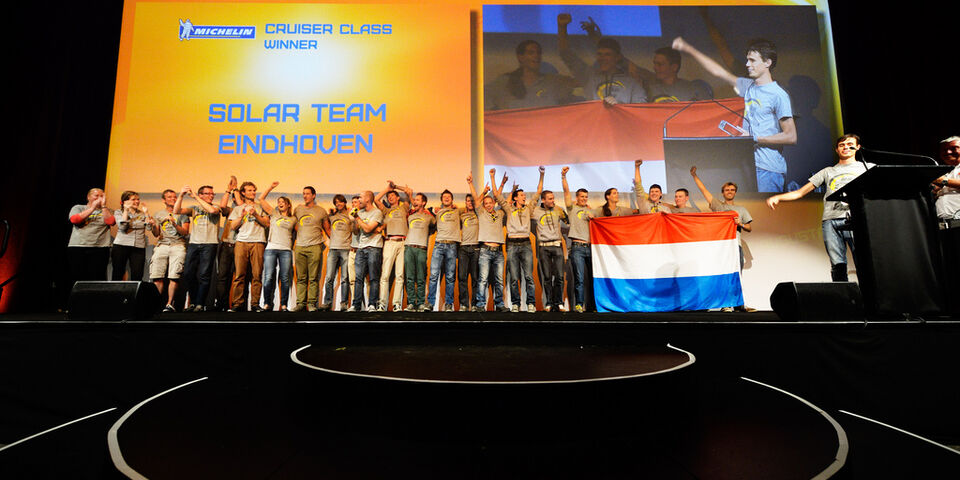The Eindhoven team was leading the competition for most of last week, but technical problems and bad weather set the students back. Because of these issues, the German team from Bochum and Australia’s SunSwift -the ones to beat for STE from the start- could narrow the gap.
Stella finished on Friday, 11 October at 1.03pm ‘Darwin Time’. It took them forty hours and fourteen minutes to travel three thousand kilometers through Auistralia. STE raced with 3.2 passengers on average, and an average speed of 72 km/h - but top speeds of 120 km/h were registered.
After having finished in Adelaide, a judging panel evaluated Stella for comfort, user-friendliness, and integrated innovations, but also trunk space and parallel parking. The fact Stella is licensed in the Netherlands scored STE extra points as well.
Chris Selwood, event director of the World Solar Challenge, congratulated the Eindhoven team with its ‘innovative, practical design, and their vision about future solar cars’.
After the announcement the delirious Dutch team stormed the stage, Dutch flag in hand. Team manager Lex Hoefsloot: “I want to thank the organization for adding a new category. It’s given us the opportunity to show new technologies and prove to the world that creating a solar family car that’s practical and comfortable.”
He also thanked the sponsors, and especially TU/e. He said the university had the courage to support STE from the get go when there was no team, no sponsors, and really not even a car.
Earlier this week it was announced that the Delft Nuon Solar Team won the Challenger race, where speed is most important. The team of Twente University came in third in the same category.


Discussion